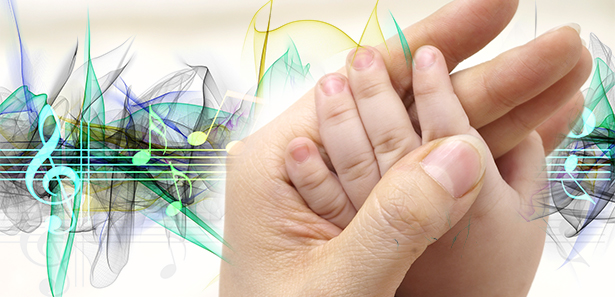How music changes our perception
Depending on the music, we feel different touches
Subtle manipulation: It is no coincidence that we like to put on romantic music for cuddling. Because music influences our perception of being touched, as an experiment shows. We feel gently stroking instinctively as sensual, if appropriate music sounds - regardless of who touches us. This subtle manipulation of our senses works even when a robot strokes us.

The nature of the music we listen to affects how we feel a touch © TongRo / thinkstockMusic is anchored deeply in our nature: already unborn children react to harmonious sounds, music awakens great emotions and can even have a healing effect - for mind and body at the same time. Even our gene activity changes when we listen to music.
Music influences touch-feeling
A further effect of the music has now been discovered by Tom Fritz of the Max Planck Institute for Cognitive- and Neurosciences. In the study, he had investigated how different pieces of music are affected by touch. The highlight: The touch was "incognito" - behind a curtain. The subjects did not know whether they were stroked by a robot with a brush or a human being.
It turned out: What music we listen to also influences how we perceive to be touched.
We have observed that the more we feel the music we hear, the more seductive we touch, explains Fritz. Certain characteristics of the music seem to translate to the haptic stimulus.
Works even with robots
The interesting thing: Even when the subjects learned before the experiment that they were not stroked by a real man, but by a robot, the music influenced how sexy the touch was perceived. This shows that the transfer effects of music on touch have to be based on very fundamental mechanisms - rather than on the notion of a person of a particular gender and attractiveness level.

Even if the subjects knew that a robot was performing gentle stroking, the music had an effect. © MPI CBSOne possible explanation might be that the emotional expression of individual musical sounds follows the same dynamics as that of a touch. A sad sound is thus processed with respect to its rhythm similar to a sad touch, a more aggressive like an aggressive touch. Accordingly, we apply more accurate processing of music to areas in the brain that are responsible for both touch and movement.
Social cement
Our results also highlight the evolutionary importance of music as a social technology, explains Fritz.
By influencing our perception, the appropriate music can help to create a positive group feeling. It directs our behavior in groups as well as in relationships and ultimately can even influence our sexual selection and our reproduction.
As the researchers explain, their findings contradict a hypothesis of the well-known cognitive scientist Steven Pinker, according to which music is only an "auditory cheesecake", a pleasant dessert. Music, according to him, is of little importance from an evolutionary point of view, and no more than a by-product of language. But the profound effect of the music speaks against this thesis, according to Fritz and his colleagues.
Source: Journal of Experimental Psychology, 2017; doi: 10.1037 / xge0000329

Very nice @n3bul4 ...blessings
It's my pleasure!
Resteemed your article. This article was resteemed because you are part of the New Steemians project. You can learn more about it here: https://steemit.com/introduceyourself/@gaman/new-steemians-project-launch
Good post !!
Thank you!
@n3bul4 got you a $1.47 @minnowbooster upgoat, nice! (Image: pixabay.com)
Want a boost? Click here to read more!
Congratulations! This post has been upvoted from the communal account, @minnowsupport, by n3bul4 from the Minnow Support Project. It's a witness project run by aggroed, ausbitbank, teamsteem, theprophet0, someguy123, neoxian, followbtcnews/crimsonclad, and netuoso. The goal is to help Steemit grow by supporting Minnows and creating a social network. Please find us in the Peace, Abundance, and Liberty Network (PALnet) Discord Channel. It's a completely public and open space to all members of the Steemit community who voluntarily choose to be there.
This post has received a 2.76 % upvote from @booster thanks to: @n3bul4.